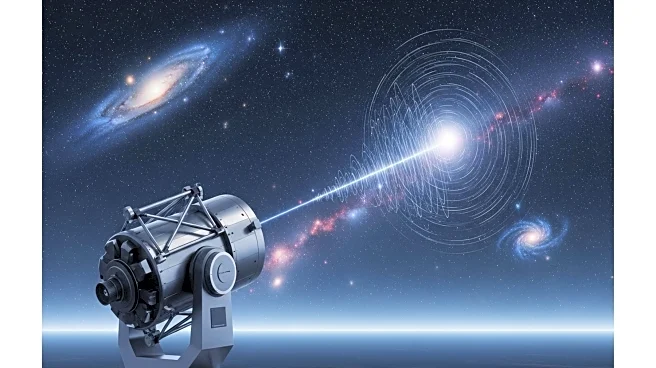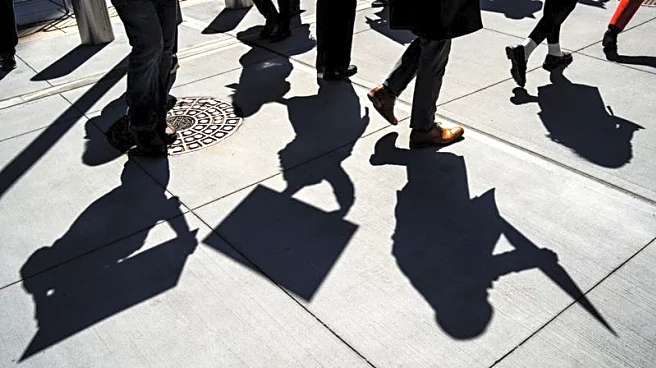What is the story about?
What's Happening?
Recent research has identified daylight savings time as an unexpected factor affecting the collection of gravitational wave data. Reed Essick, a physicist at the University of Toronto and former LIGO member, has published a preprint paper on arXiv titled 'Can LIGO Detect Daylight Savings Time?' The study suggests that the bi-annual time adjustment influences the sensitivity patterns of LIGO's detectors by approximately 75 minutes. This shift in human activity, including operational workflows and physical presence at observatories, impacts the data integrity collected by LIGO and its sister institutions, Virgo in Italy and KAGRA in Japan. The paper highlights that while daylight savings time does not affect the actual signals from astronomical events, it does introduce non-trivial changes in human activity that can lead to systemic biases in gravitational wave astronomy.
Why It's Important?
The findings underscore the complexity of gravitational wave data collection and the potential for human-related factors to introduce biases. As gravitational wave astronomy continues to grow, understanding and mitigating these subtle influences becomes crucial for accurate data interpretation. The study suggests that other hidden selections might exist within gravitational wave observations, emphasizing the need for multi-messenger astronomy to cross-check phenomena. This research could lead to improved methodologies in data collection and analysis, ensuring more reliable results in the field. The broader significance lies in the potential for space-based observatories, which could eliminate human presence and its associated biases, thereby enhancing the accuracy of astronomical observations.
What's Next?
The study calls for a cautious approach to data interpretation in gravitational wave astronomy, advocating for healthy skepticism. Future research may focus on developing strategies to mitigate the impact of daylight savings time and other human-related factors on data collection. The exploration of space-based observatories as a solution to eliminate human presence and its effects is a potential avenue for future advancements. As the field progresses, collaboration among international institutions and the adoption of multi-messenger techniques will be essential to verify and enhance the reliability of gravitational wave observations.
Beyond the Headlines
The research highlights the broader implications of human activity on scientific data collection, raising questions about the influence of seemingly minor factors on complex scientific processes. It prompts a reevaluation of how human presence and societal practices, such as daylight savings time, can inadvertently affect scientific outcomes. This study may inspire further investigations into other areas of science where human-related biases could be present, leading to more robust and unbiased methodologies across various fields.
















